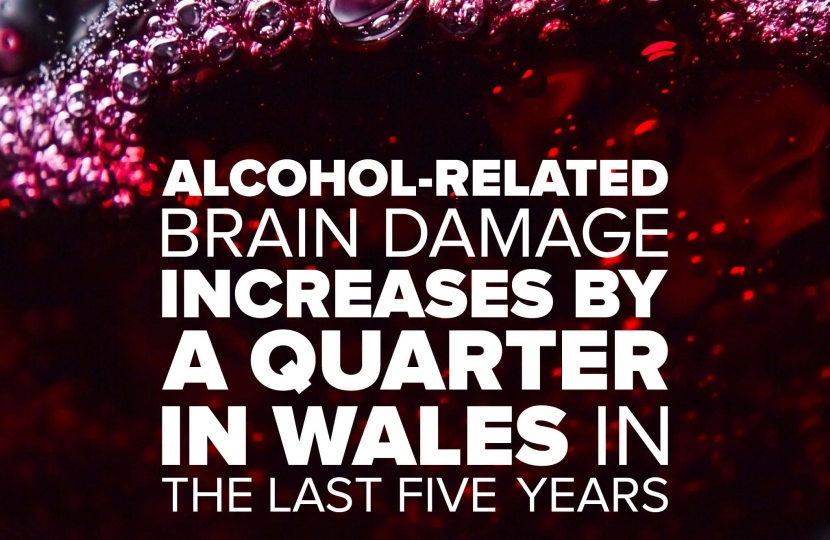
Alcohol-Related Brain Damage increases by a quarter in Wales in five years
Information obtained by the Welsh Conservatives show the number of patients admitted to Welsh hospitals have increased by 24% since 2012.
In 2017, 335 patients had attended hospital with “any mention of alcohol-related brain damage” compared to 255 in 2012.
There had been a year-on-year increase since 2015 when 248 cases were recorded, followed by 282 the next year. 243 were recorded in 2013.
The health boards to record the highest number of these cases were Aneurin Bevan and Abertawe Bro Morgannwg health boards, recording 78 and 75 cases, respectively, in the last year alone.
This marks a 127% increase on 2012 figures for the health board covering Swansea, Neath Port Talbot, and Bridgend, and an 86% surge for Aneurin Bevan.
Hywel Dda, Cardiff & Vale, and Cwm Taf health boards also saw increases in the number of patients being admitted with alcohol related brain damage, as did Velindre NHS Trust.
Alcohol-Related Brain Damage is an umbrella term for the damage that can happen to the brain as a result of long-term heavy drinking. Over time, drinking too much alcohol can change the way the brain works, and its physical shape and structure. This can have devastating impacts to an individual, leading to changes in personality, problems with thinking, mood and memory and can lead to alcohol related dementia and Korsakoff’s Syndrome.
The figures were disclosed to Welsh Conservative and Shadow Health Secretary Angela Burns AM following a Written Assembly Question to Vaughan Gething, the Labour AM responsible for the NHS in Wales.
She said:
“It is always disheartening to see people having to be hospitalised if they have addiction problems with alcohol, but what is more frustrating is when those numbers aren’t falling.
“The Welsh Labour Government have had several programmes over the past two decades to tackle alcohol abuse, but this is only part of the evidence that shows they’ve failed – it’s getting worse on their watch.
“Whilst the MUP may go some way in reducing alcohol consumption, there is no certainty that the most vulnerable people in Wales, such as those with chronic alcohol addictions, won’t be adversely effected by increased prices in alcohol.
“This is why we fought to secure robust evaluation of the Act to ensure that the MUP does not exacerbate substance misuse issues amongst vulnerable people.
“Welsh Conservatives don’t want programmes put in place that punish those with addiction problems, but solutions to the fundamental reasons people become dependent on substances like alcohol in the first place.”


